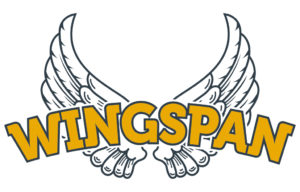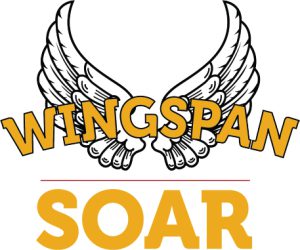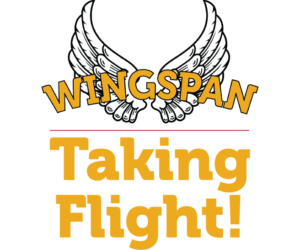

The goal of the Student Occupational Awareness and Recognition Program (SOAR) is to expose, educate, and engage students in career development and career decision-making. The program provides career services to students at public middle and high schools, grades six through twelve. Students receive in-depth education and direction on career choices and access to up-to-date labor market and career data. The SOAR Program offers many resources to help students to become workforce-ready!
Career Ready Certification
Unlock your students' future with a comprehensive Career-Readiness Certification program designed to equip students with the essential skills and knowledge needed to embark on a successful career journey. The five-session program supports the standards of college and career readiness and empowers middle and high school students across Central Texas with the essential skills and the knowledge they need to become truly career-ready.
Our program is led by Student Occupational Awareness and Recognition (SOAR) Career Coaches and is based on valuable insights from major employers in the region, ensuring that students are equipped with the tools they need to excel in the professional world. The program has been meticulously crafted based on feedback from major employers across Central Texas, ensuring that it aligns perfectly with the expectations of the job market.
Career Readiness Certification is three easy steps:
Career Session Topics Include:
Unlock Your Future
In this module, students will explore their own interests, values, strengths, and weaknesses to gain a deep understanding of themselves. Students will identify their personal and professional goals through self-assessment tools, reflection exercises, and group discussions. They will learn how to set SMART (Specific, Measurable, Achievable, Relevant, Time-bound) career goals and create a road map to achieve them.
Exploring Your Horizons
The world of careers is vast and diverse, and this module introduces students to the exciting possibilities it offers. Students will explore a wide range of career pathways and industries, gaining insight into the skills and qualifications required for each. They will master the art of researching industries, companies, and job roles using online resources. This module ensures students make informed decisions about their future, based on their interests and industry realities.
Skills That Will Make You Shine
Employers value specific qualities in job candidates, and the employability skills module focuses
on developing these skills to enhance students' competitiveness. Students will explore skills such as communication, teamwork, problem-solving, and adaptability to name a few. Emphasis is always placed on students demonstrating and understanding these skills on resumes, during interviews, and in the workplace to help them secure and succeed in jobs.
The Art of First Impressions
Students will learn to convey their qualifications confidently, answer challenging questions, and present themselves professionally. Students will refine their communication skills and boost their interview success rate. Day two of this module goes beyond theoretical knowledge, providing students with the unique opportunity to engage in mock interviews with accomplished business leaders and seasoned workforce development professionals.
Our Career-Readiness Certification program provides students with a well-rounded foundation for their career preparation journey. It empowers them to understand themselves, explore potential career paths, and equip themselves with the skills and knowledge needed to pursue their chosen careers successfully. Join us on this transformative journey to unlock your students’ future and build a path to success!
Additional Career Resources for Your Students and Campus:
Student Career Assessment and Interest Profiler
Your SOAR Career Coach can help your students find out what their interests are and what kind of pathway they might want to pursue through self-assessment career exploration tools that can help students discover the type of work activities and occupations that they would like and find exciting. Students identify and learn about broad interest areas most relevant to themselves. They can use their interest results to explore the world of work.
Virtual Reality Career Navigation
SOAR’s virtual career exploration simulates the type of work that takes place in the employer's facility. With one-to-one instruction from a SOAR Career Coach who adapts to the student's performance, virtual reality career exploration safely replicates an on-the-job environment in the classroom - giving students real experiences related to the occupations without the overhead of a multi-million-dollar training facility while providing real-life experiences.
Student One on Ones
The words career, job, and occupation are often used interchangeably. The SOAR Career Program helps students identify career pathways and the education that is needed to accomplish their goals through one one-on-one discussion.
For more information on how your school district can participate, please contact:
Charley Ayres,
Director Industry/Education Partnerships
charley.ayres@workforcesolutionsctx.com
254.742.4520
 Taking Flight is targeted at students and young adults (16–24) and provides support for them to achieve the education, skills, and experience needed to accomplish their goals and bring it all together with a good job to start a career or earn money while they work toward a degree/certification. Taking Flight is a no-cost employment program designed to give youth and young adults the support and/or skills training they need to find a job. Specifically, Taking Flight can provide:
Taking Flight is targeted at students and young adults (16–24) and provides support for them to achieve the education, skills, and experience needed to accomplish their goals and bring it all together with a good job to start a career or earn money while they work toward a degree/certification. Taking Flight is a no-cost employment program designed to give youth and young adults the support and/or skills training they need to find a job. Specifically, Taking Flight can provide:
The program is a competency-based work experience that includes work-readiness workshops, and training components that focus on workplace expectations, leadership skills, and financial management. On-site work experience with employers is a major part of the program. If you are an employer and you are interested in supporting this program complete the Worksite Agreement and contact our Wingspan Specialist, Caithryn Grace at 254.200.2207 or at caithryn.grace@workforcesolutionsctx.com. Participants work with staff to complete resumes and learn job-search skills. They can receive cash incentives when employment is confirmed. Services include monthly follow-ups with participants to monitor progress, provide employment referrals, and arrange further assistance if needed.
Documents Needed to Apply:
Eligibility Requirements:
Planning for a career can feel overwhelming. The more you know about your skills and preferences, the more prepared you are to search for jobs that are a good fit, write resumes, interview with employers, and find the career that best suits you.
Workforce specialists will help you learn about occupations available in Central Texas that fit your unique career preferences, skills, interests, and values. We provide current labor market information to give you the opportunity to research in-demand occupations, salaries, career options, required education, and training/skills levels.
The Texas Internship Challenge is a recommendation from the Texas Workforce Commission, Texas Education Agency, and Texas Higher Education Coordinating Board to the Governor’s Office, as part of the Tri-Agency Initiative, challenging industry and employer partners to offer more paid internships for Texas students.
The Summer Earn & Learn program provides students with disabilities work readiness training and paid work experience in Texas. The program is a partnership between TWC, Local Workforce Development Boards and Texas Workforce Solutions-Vocational Rehabilitation Services (TWS-VRS). Students can earn money at a part-time summer job while receiving work skills training!
The Workforce Solutions Of Central Texas System Is An Equal Opportunity Employer/Programs. Equal Opportunity Is The Law.
Auxiliary Aids And Services Are Available Upon Request To People With Disabilities.
Relay Texas: 711 • TDD: 1-800-735-2989 • Voice: tel:800-735-2988
Privacy Policy
At Workforce Solutions of Central Texas, we hold your privacy in the highest regard. We assure you that your personal information is not shared with any third parties. This privacy policy is designed to clearly outline how we collect, use, and protect the information you provide.
Information Collection:
We collect only the information necessary to provide and improve our services. This may include name, email address, etc. We do not sell, rent, or share this information with third parties.
How We Use Your Information:
The information collected is used solely for communicating with the intended party. We may use the information provided to communicate with you via phone, text (SMS), and email. We do not share your information with external parties for marketing or other purposes.
Your Choices:
Your control over your information is important to us. You have the right to access, correct, or delete your information. If you have any concerns or questions about your data, please feel free to contact us at customer.care@workforcesolutionsctx.com.
Policy Changes:
We may update our privacy policy from time to time. Any changes will be communicated to you, and your continued use of our services implies your acceptance of the revised policy. You agree to the terms outlined in this privacy policy by using our services.